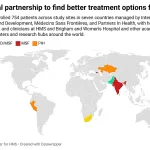Leipzig, Germany – Obesity, a condition that has only recently been recognized as a disease by the public, took center stage at the European Association for the Study of Diabetes (EASD) 2024 Annual Meeting. Professor Matthias Blüher, MD, from the Leipzig University and director of the Helmholtz Institute for Metabolism, Obesity, and Vascular Research, delivered a thought-provoking presentation on the future of obesity therapies.
Blüher emphasized that while the perception of obesity has evolved, the societal and cultural shifts surrounding its understanding are just beginning. Drawing attention to how obesity has gained more recognition, he cited the 2022 film The Whale, where Brendan Fraser’s portrayal of a man struggling with obesity earned him an Academy Award. Blüher speculated that many celebrities in the audience were likely using new weight loss medications, further signaling changing attitudes.
“I strongly believe that in the future, obesity treatment will carry less stigma. It will be considered not as a cosmetic problem, but as a progressive disease,” Blüher stated. He outlined the critical role that early interventions would play, pointing out that if a child is overweight at ages 3-6, there is a 90% chance they will carry obesity into adulthood. He stressed the need for early action, saying, “Shouldn’t we put more emphasis on this age group?”
Moving Beyond BMI
Blüher called for a paradigm shift in how obesity is measured and treated. He advocated for moving beyond traditional metrics like body mass index (BMI) and body weight, suggesting instead a more comprehensive approach that takes into account fat distribution, adipose tissue function, muscle loss, and body composition.
He highlighted the recently published European Association for the Study of Obesity’s framework for diagnosing and managing obesity, which emphasizes that medical, functional, and psychological factors—such as mental health and eating behavior—should all be considered.
“The causes of obesity are too complex to be individually targeted,” Blüher explained. He added that clinicians should shift their focus from a specific weight loss goal to improving related health conditions like sleep apnea and physical functioning.
Three Pillars of Treatment
Currently, obesity treatments fall into three broad categories: behavioral interventions, pharmacotherapy, and surgery. Behavioral interventions—such as counseling, diet, exercise, and stress management—are often the first step, but Blüher acknowledged that these interventions are prone to low adherence and limited long-term effectiveness.
For pharmacotherapy, Blüher expressed optimism about the expanding options. He pointed out that drugs like semaglutide and tirzepatide have shown promising results, but the future holds even more potential. “The pipelines for obesity pharmacotherapies are full,” he said, mentioning CagriSema (a combination of cagrilintide and semaglutide) and triple agonists like retatrutide, which target multiple pathways to help reduce body weight more effectively.
When it comes to surgery, Blüher noted that while new weight-loss drugs might one day replace surgery, the two will likely coexist for the foreseeable future. “I believe that obesity won’t be cured in the future,” he remarked, “but we will have increasingly better lifelong management with a multidisciplinary approach.”
Treating the Causes, Not Just the Symptoms
Blüher also expressed hope for therapies that target the underlying causes of obesity. He referenced leptin therapy, first used in a 1999 study for congenital leptin deficiency, as an example of how addressing root causes could revolutionize obesity treatment.
“We are at the beginning of these causative treatments, and I hope that the future will hold much more of these insights, similar to how cancer therapies have evolved,” Blüher said.
A Personalized Future
During the Q&A session, Blüher was asked about the role of microbiomes and personalized medicine in future treatments. While he acknowledged the potential of targeting the microbiome, he remained cautious due to the complexity of understanding which bacteria and compositions need to be targeted.
On personalized treatment, Blüher spoke about efforts to subcluster people living with obesity based on various factors like adipose tissue expression. “We are far from addressing the root causes and subtypes of the disease,” he said, but he was optimistic that personalized treatment approaches would eventually emerge.
As obesity continues to affect millions worldwide, Blüher’s vision for its future treatment underscores the importance of a multidisciplinary approach, early interventions, and targeted therapies. With ongoing research and development, the outlook for individuals living with obesity is becoming brighter—less about cosmetic goals and more about sustainable health outcomes.










